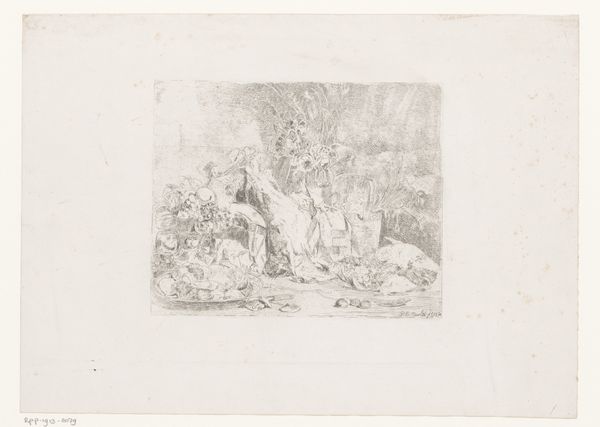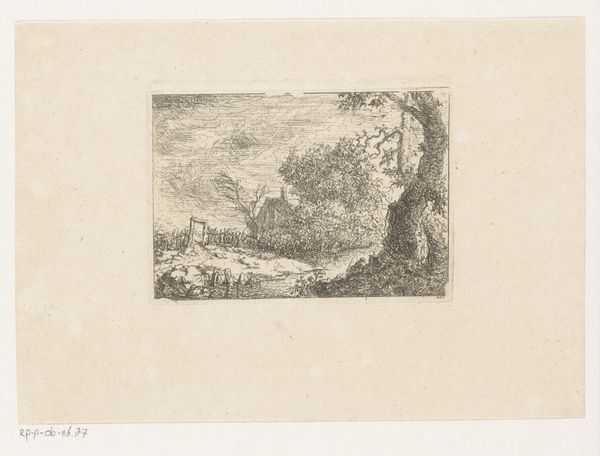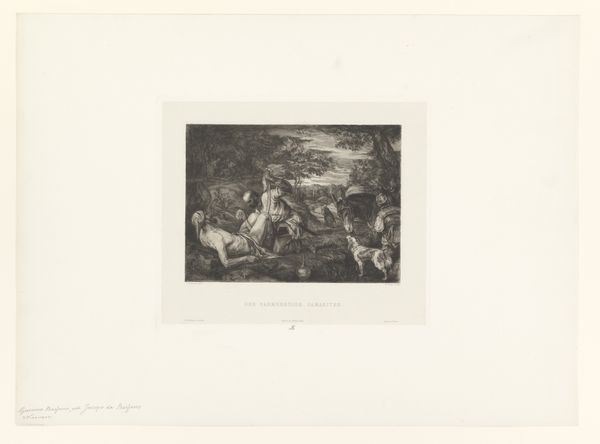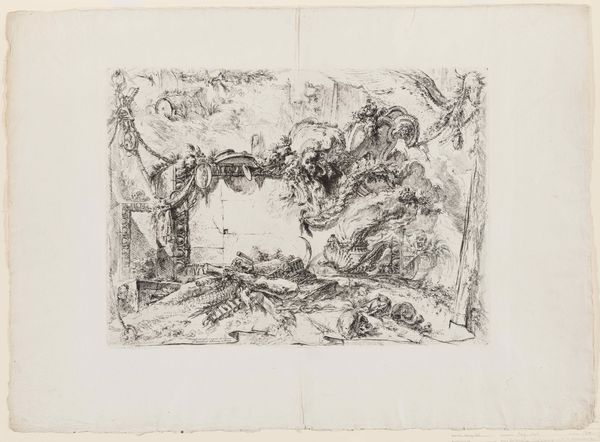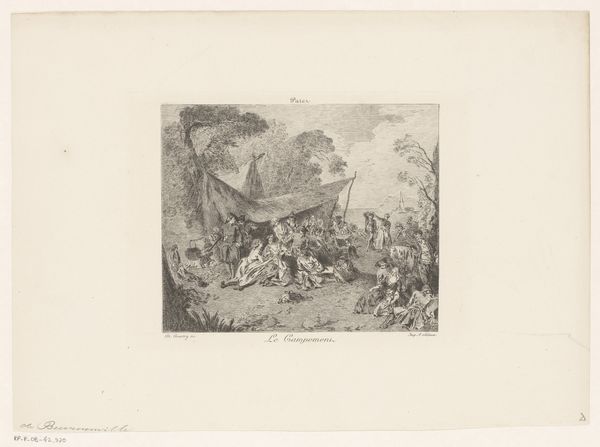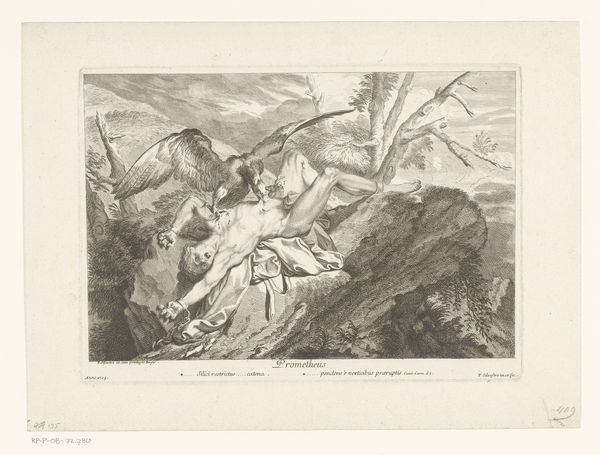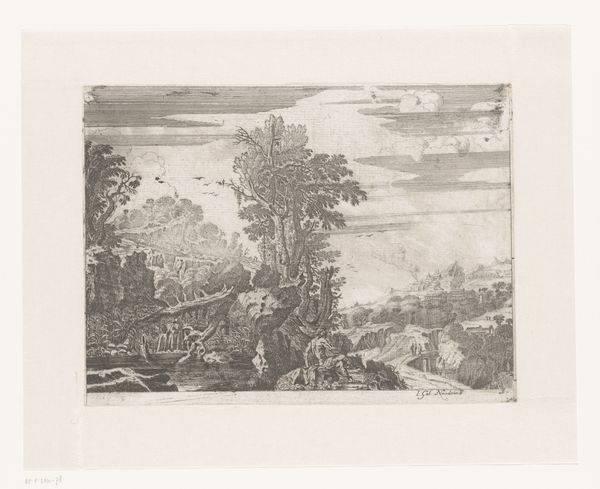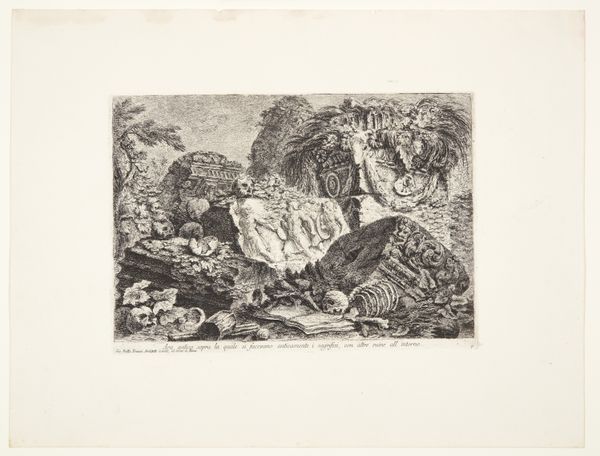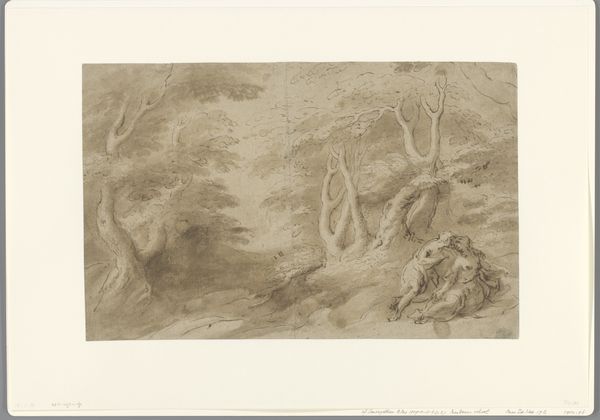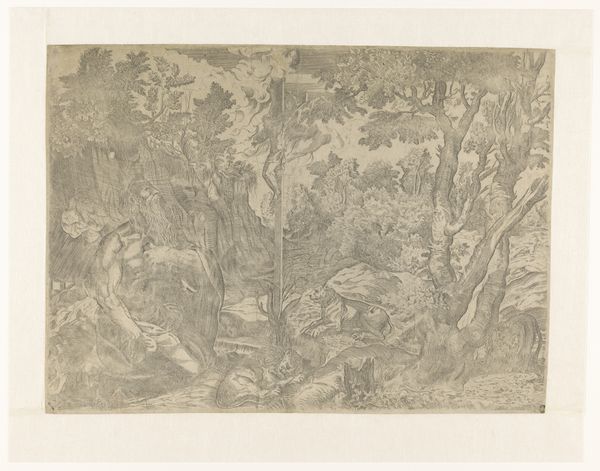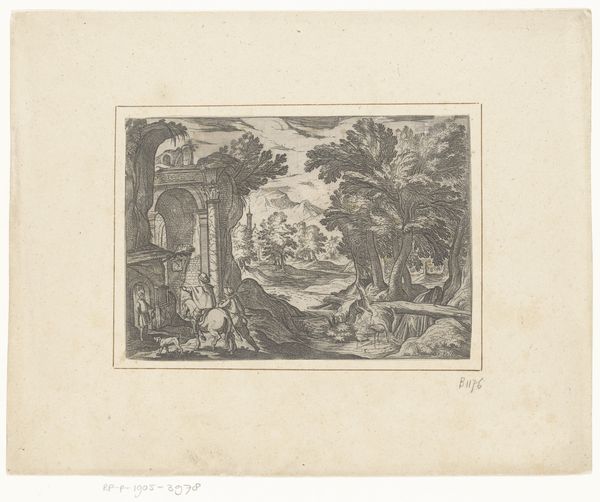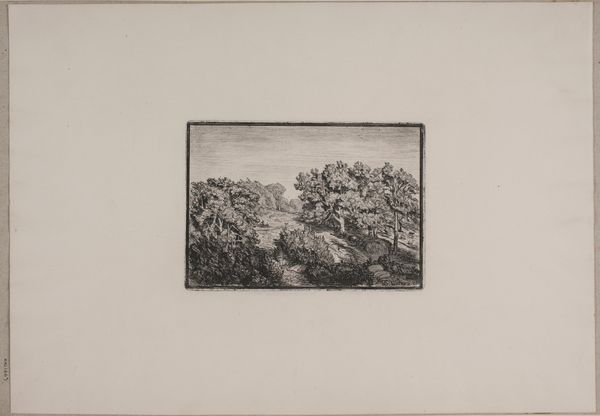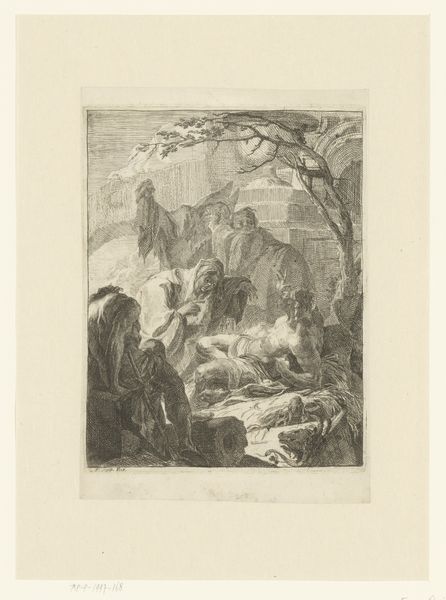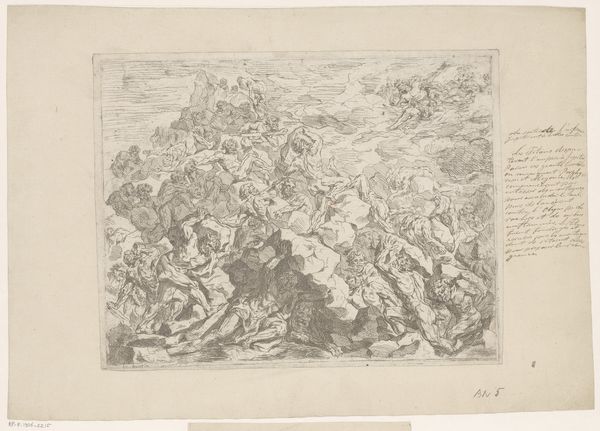
print, etching
# print
#
etching
#
figuration
#
symbolism
#
history-painting
Dimensions: height 470 mm, width 670 mm
Copyright: Rijks Museum: Open Domain
Henri de Groux made this print, 'Christus aan het kruis', using a technique called lithography. It is essentially drawing with grease on a stone or metal plate, then using ink to transfer that image to paper. Lithography was a relatively new method at this time, closely tied to the rise of mass media in the 19th century. Think about newspapers and posters. The ability to reproduce images quickly and cheaply democratized art, bringing it to a wider audience than ever before. De Groux’s choice of lithography isn't accidental. The medium’s inherent qualities – the soft, grainy textures, the deep blacks achievable – lend themselves perfectly to the image’s dramatic intensity. You can almost feel the weight of the crowd, the darkness of the scene. The social impact of Christ's crucifixion is amplified by the print's reproducibility. Looking at this print, remember that the materials and the making are not separate from the meaning. They are deeply intertwined. By understanding the process, we gain a richer appreciation of the artwork itself, and the society that produced it.
Comments
No comments
Be the first to comment and join the conversation on the ultimate creative platform.
